NEC's Black Student Union and Gospel Ensemble Celebrate Coretta Scott King
Students celebrate the accomplishments of activist, musician, and alumna Coretta Scott King.
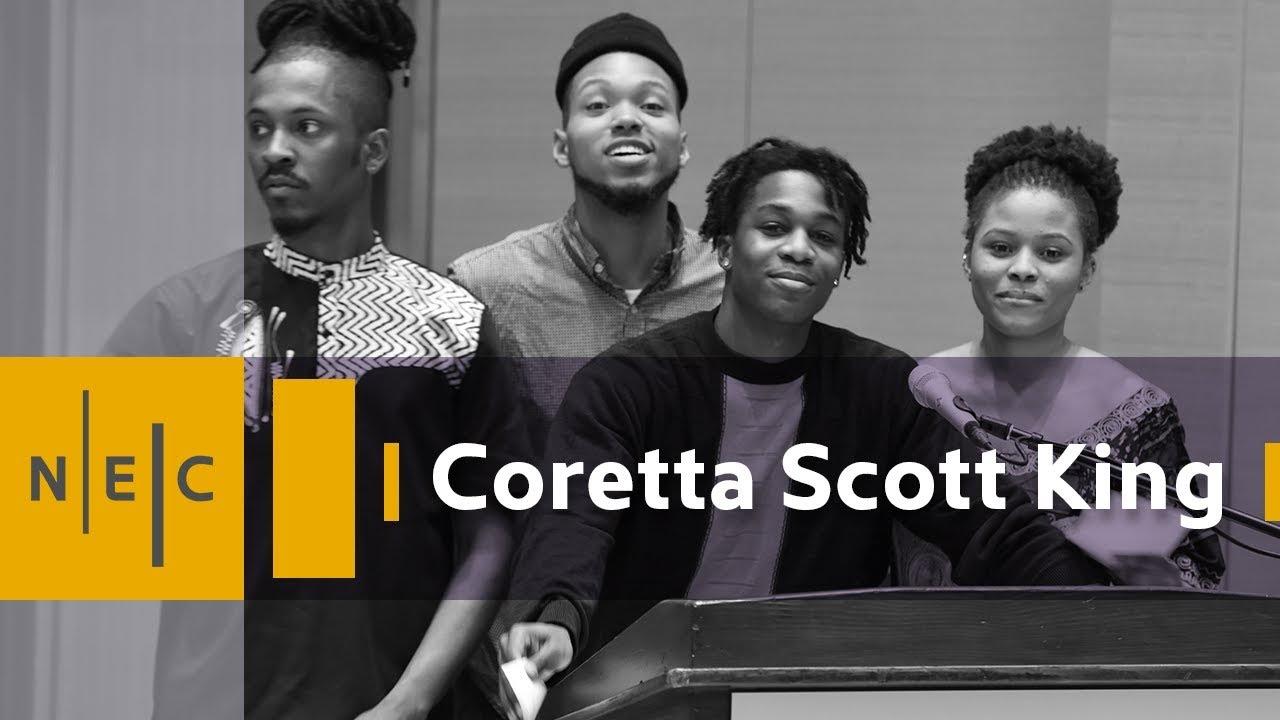
During Black History Month 2018, NEC's Black Student Union (BSU) and Gospel Ensemble honored alumna Coretta Scott King ’54, ’71 hon. DM in a student-led program celebrating King’s work as a musician and activist.
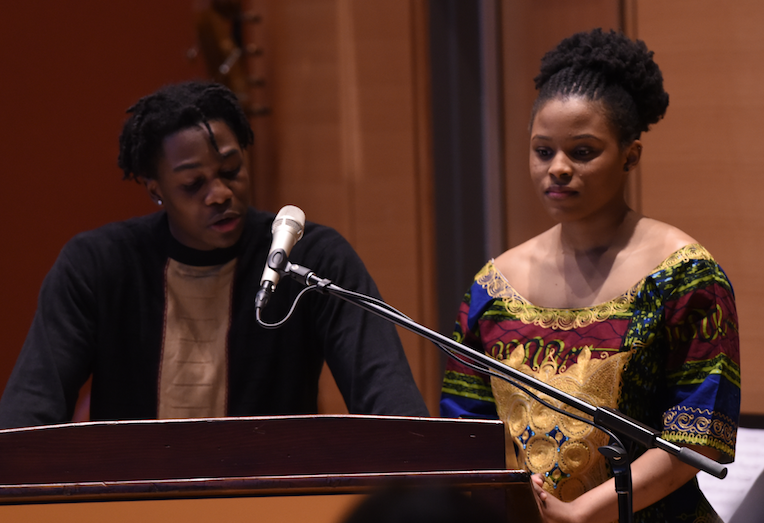
Robyn Smith ’19, president of the BSU, presented the welcome remarks with fellow BSU member David Norville ’20 in Burnes Hall at NEC’s new Student Life and Performance Center.
“This day,” said Smith and Norville, “is meant to honor one of NEC’s most significant alumni, and one of the world’s most influential social activists, Coretta Scott King.”
“We are honoring Coretta the musician, Coretta the daughter, Coretta the scholar, Coretta the diplomat, and Coretta the freedom fighter.”
Smith reported that the concert brought tears to the eyes of many attendees, as it paid tribute to Mrs. King through poetry, music and composition. “You could feel the amount of emotion in the room—to be a part of that was something that touched me,” she said.
Delving deep into history
The program opened with BSU members performing “Lift Every Voice and Sing.” The hymn, widely known as “The Black National Anthem,” was composed by Harlem Renaissance activist and NEC alumnus John Rosamond Johnson 1893, and was notably performed by fellow NEC alumna Denyce Graves ’88 DP, ’14 hon. DM at the opening of the National Museum of African American History and Culture in 2016.
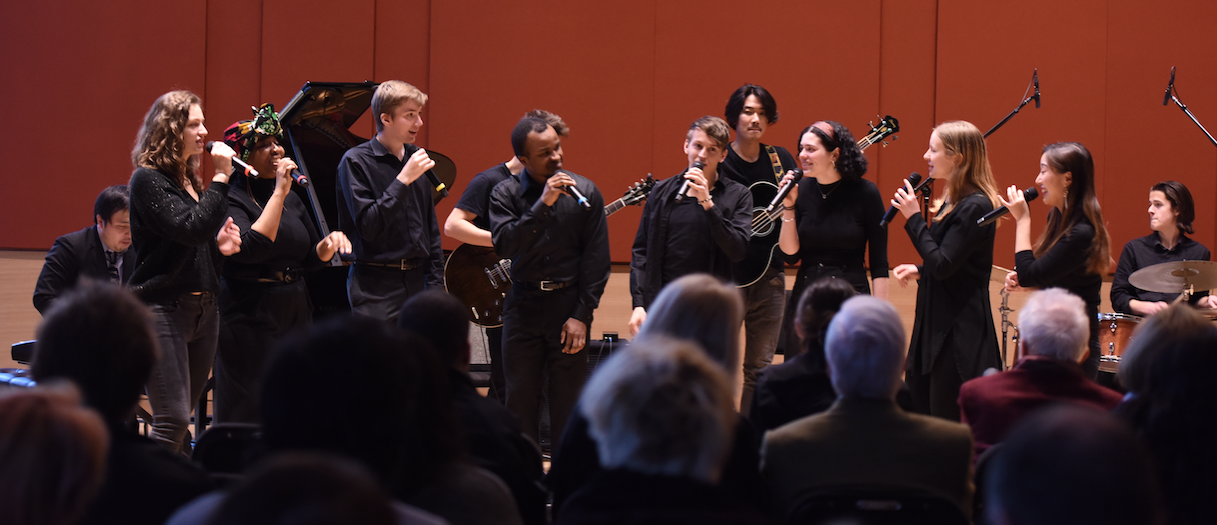
Performers included Darynn Dean (voice), Lewis Warren (piano), David Norville (speaker; oboe), Joseph Newton (double bass), Kebra Charles (double bass), Robyn Smith (speaker; trombone), Mira Williams (viola) as well as the NEC Gospel Ensemble, led by founder and alumna Nedelka Prescod ’12 MM, ’16 DMA.
The program also included works by Civilla D. Martin (“His Eye Is on the Sparrow”), Langston Hughes (“The Negro Speaks of Rivers”), James Baldwin (“The Darkest Hour”), William Grant Still (“Here’s One”), and others.
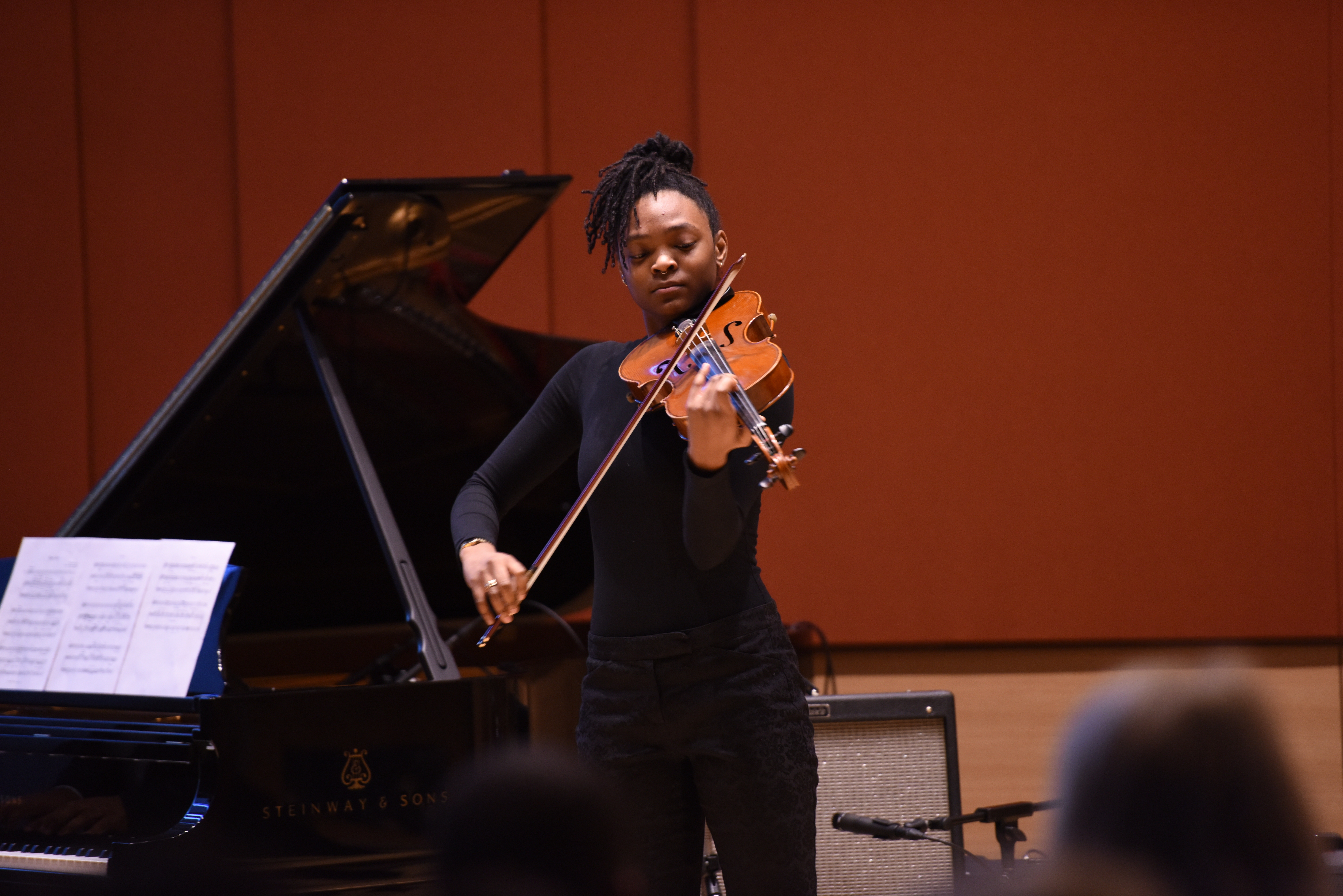
Smith noted that the program included more instrumental than vocal performances, highlighting the major contributions made by African American NEC alumni in the classical world:
“Our recognition for music has been seen more in vocal music—R&B and gospel. But we have quite a few African American classical majors at NEC.”
A tribute slideshow played during the performance to honor the contributions of African American alumni—for example, NEC alumna Florence Price 1907, who was the first African American woman to have her work played by a major orchestra, and whose work will be highlighted in the upcoming NEC150 Celebration concert.
Wife, Mother, Diplomat, Activist, Cultural Catalyst
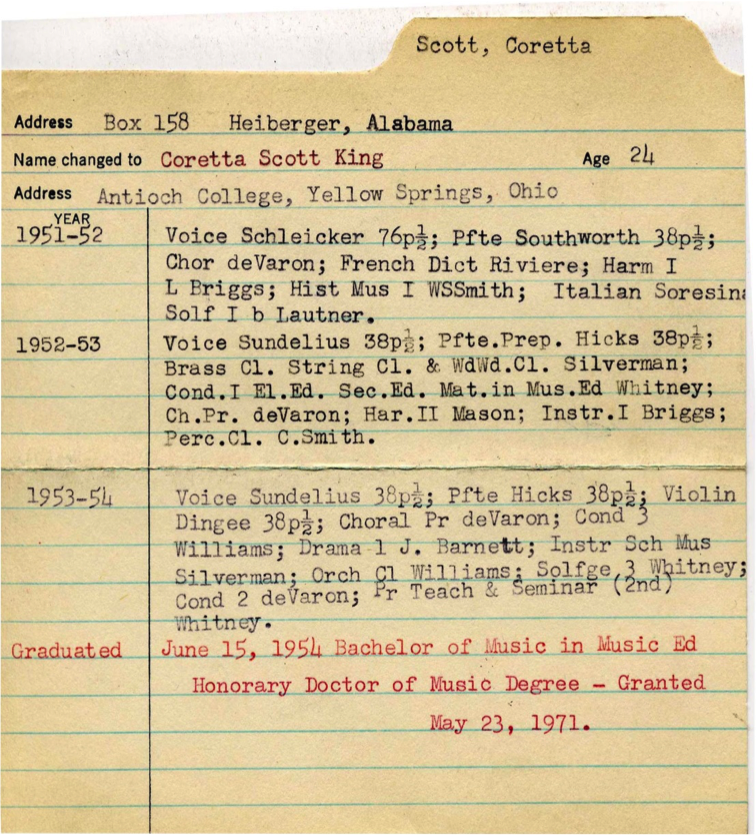
Smith was inspired to learn about the many sides of King's life:
“You always think of Coretta Scott King marching alongside Martin Luther King, Jr. or home with the kids.”
“But in actuality, she was also this entertainment dynamo who performed with many symphonies and truly propelled African American music and culture forward.”
To prepare the afternoon’s program, Smith, Norville, and other members of the BSU worked with NEC Archivist Maryalice Perrin-Mohr, exploring materials from the NEC libraries, such as recordings of speeches given by Mrs. King at NEC—at commencement in 1971, and when she received an honorary doctorate from NEC in 2004.
Through their research, Smith and other BSU members uncovered Mrs. King’s favorite spirituals and poems, many of which were performed during the Freedom Concerts she produced, which raised money for the Civil Rights cause and which—like the BSU’s program in King’s honor—included not just music, but also poetry and lectures.
“His Eye Is On The Sparrow”
“For example, we chose ‘His Eye Is On The Sparrow’ because we read an article that said this song was one of Coretta’s favorites,” explained Smith.
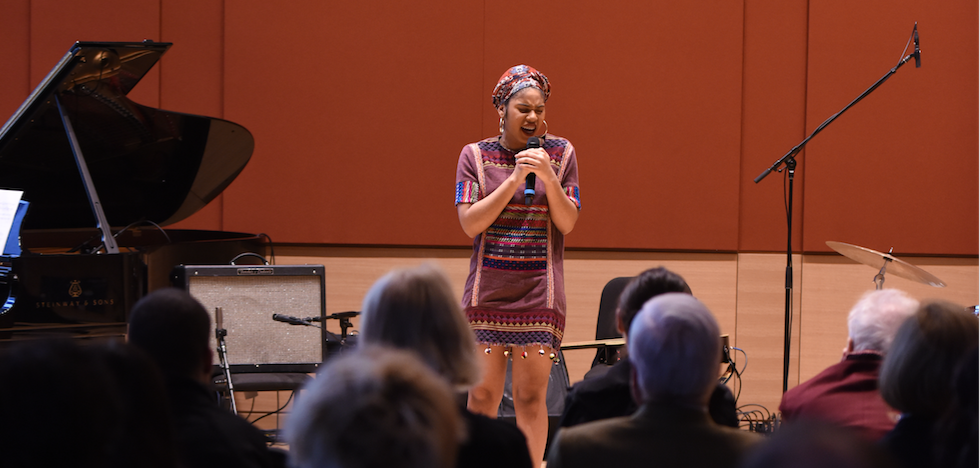
“I really loved how Darynn [Dean] sang the song. I didn’t hear it the way I would usually hear it in church.
“She really put her voice inside of that song and sang out what it meant to her. You could feel her attachment to Coretta Scott King through her emotional delivery and what it meant for her to be performing it at NEC.”
With a laugh, Smith shared that “apparently Martin Luther King once ended up singing [‘His Eye Is On The Sparrow’] as an unintentional solo. Coretta wrote about it in her autobiography.”
“She said he had a good voice for a choir.”
A sense of belonging
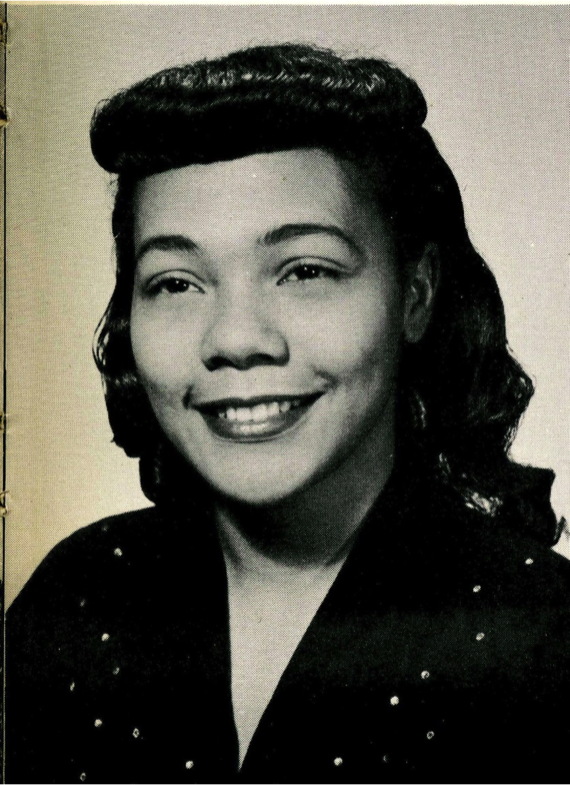
Later in life, Coretta Scott King expressed her belief that there was nothing accidental about her presence at NEC, saying, “This is where I knew I was supposed to be. I knew that I didn't accidentally end up at the Conservatory...when I was on the way, I got word that I had the scholarship.”
“So I just knew that this is supposed to be, because I got it at the last minute. And once I got there, and had spent the week in orientation, I just had this great feeling of fulfillment: I'm here.”
Smith believes that by celebrating the rich history of African American alumni, today's students—of all identities and backgrounds—can feel the sense of inclusion and fulfillment that King described:
“What can make NEC better, a more inclusive place? Acknowledgement of everybody. We have faith that things like this will move us forward to more inclusivity, more diverse communities.”
Back to NEC News
